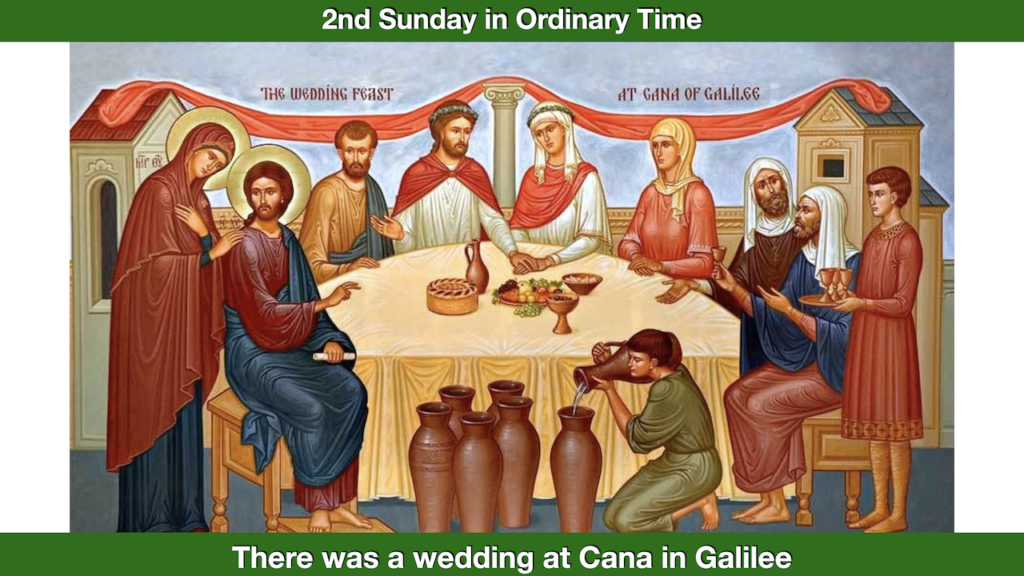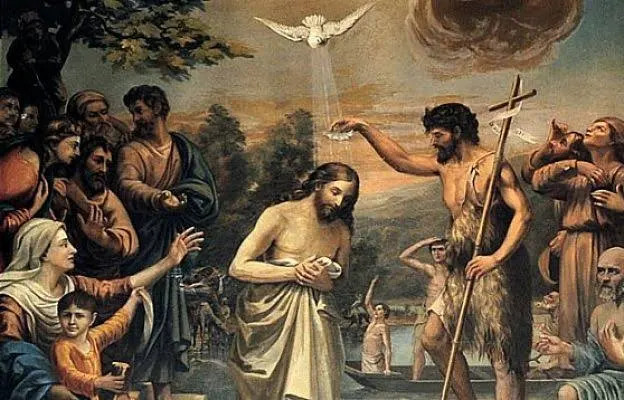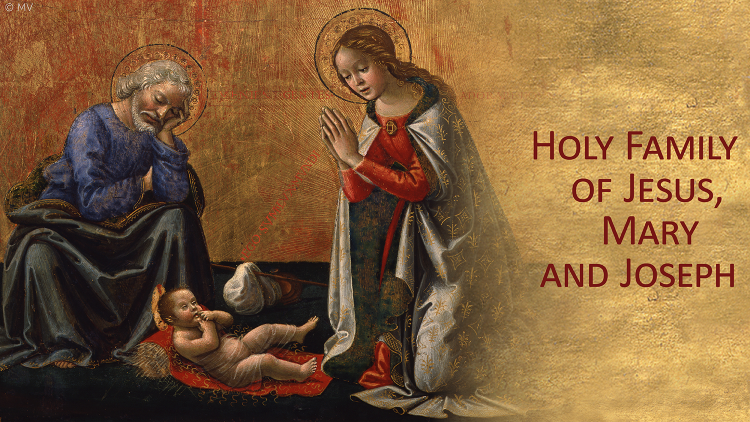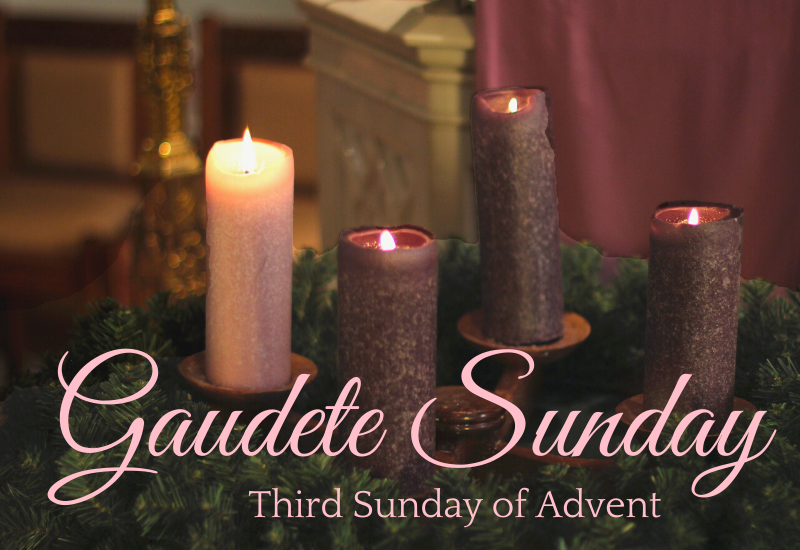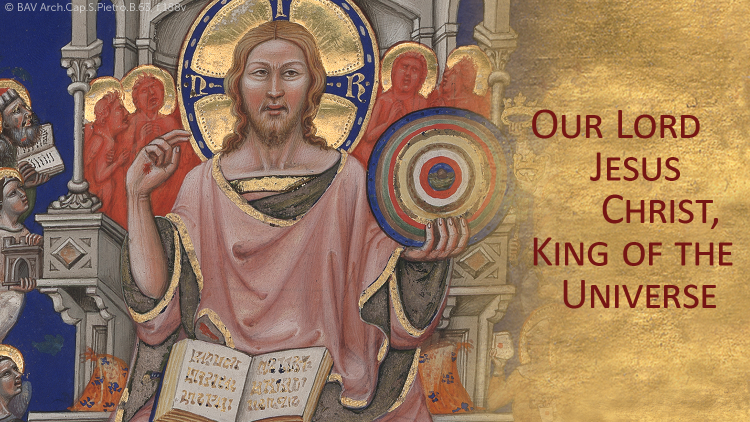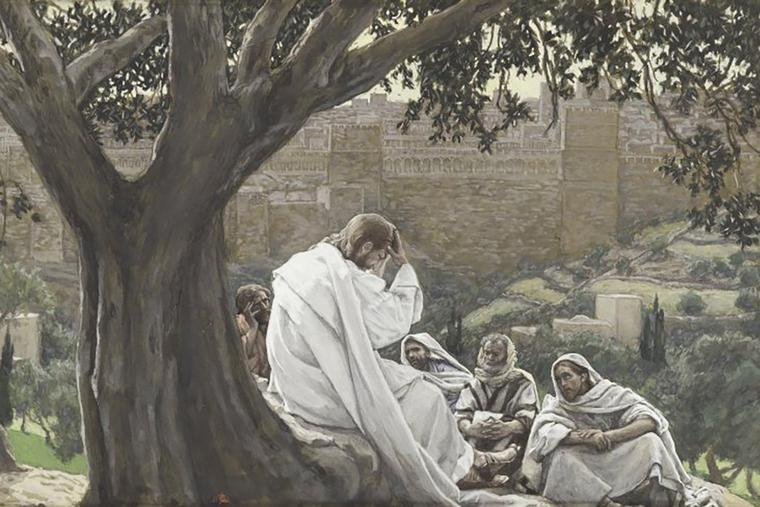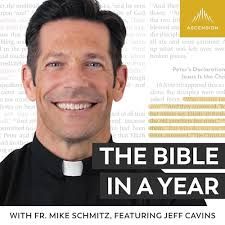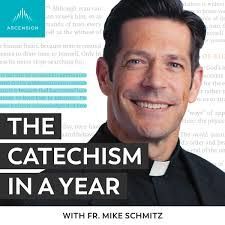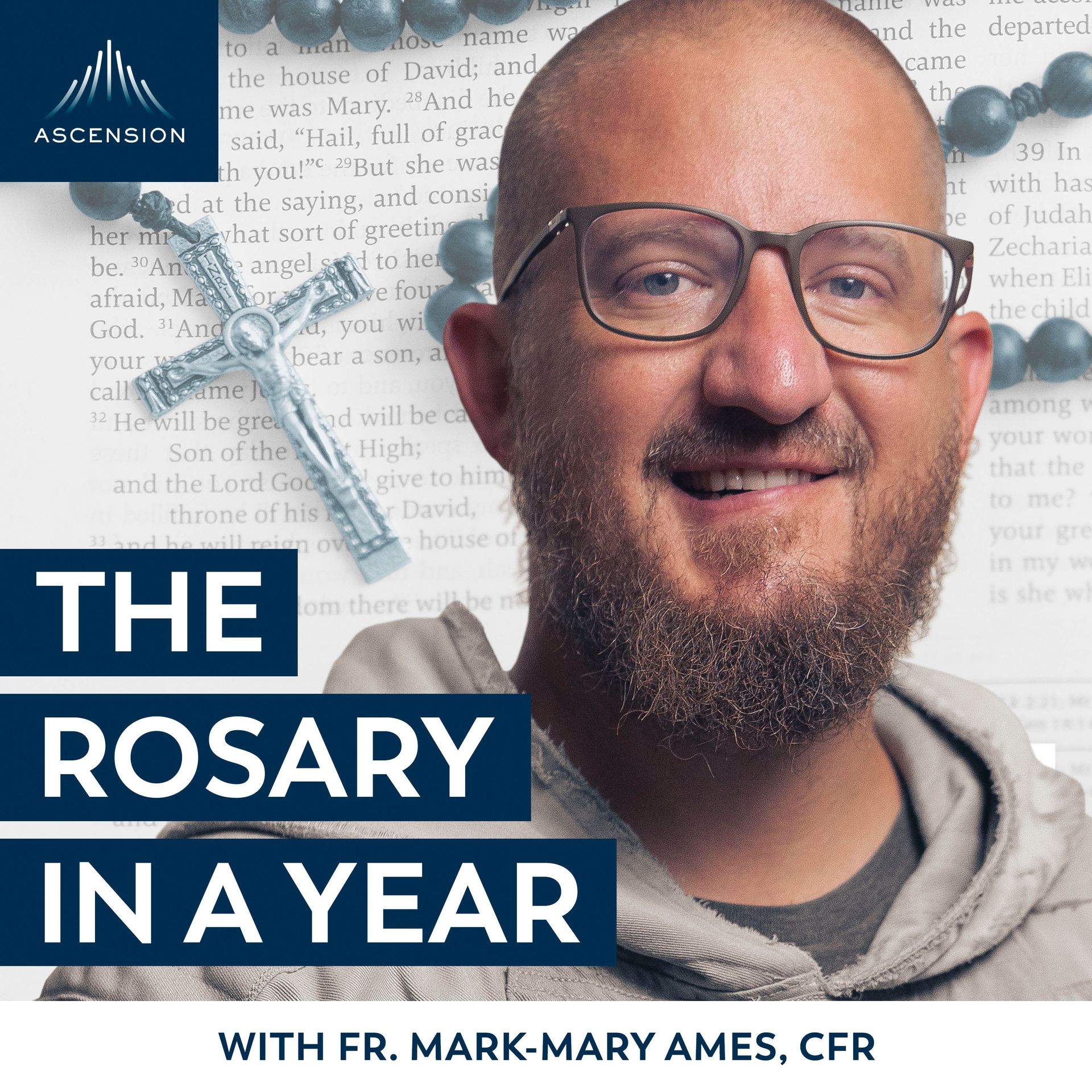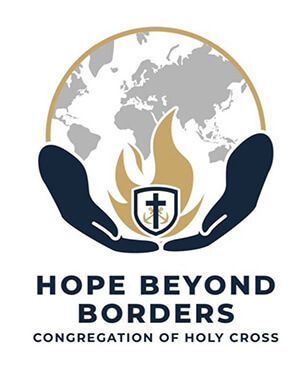Thirty-2 Third Sunday in Ordinary Time, November 19, 2023
Dear Friends,
I heartily welcome Fr. Jim Sichko to our St. John the Evangelist Community. He is here to lift up our spirits by offering an Advent Mission that will help us prepare for our Lord’s coming. What a blessing it is to have him with us. Fr. Jim Sichko is from the Diocese of Lexington, Kentucky. He is a full-time preacher, evangelist, and motivational speaker. In February 2016, Pope Francis commissioned him as one of his Papal Missionaries of Mercy. He was an opera singer before becoming a priest. When he is not on his mission tours, he lives with Pope Francis in Rome.
The title of Fr. Jim’s Advent Mission is 60 Minutes for Jesus. Please block your calendar for November 19-21, 2023, Sunday through Tuesday, at 7 p.m. each day. Please do not miss this opportunity. Please bring your family and friends too.
On Tuesday, November 21st we celebrate the Memorial of the Presentation of the Blessed Virgin Mary. In honor of our Blessed Mother, we will have a Mass in the Grotto at 5.30 p.m. followed by praying the Rosary at 6 p.m. We will then proceed to the Church for the last day of the Advent Mission at 7 p.m.
As we celebrate Thanksgiving Day this week, please remember to attend Mass, which is the supreme and quintessential form of thanksgiving for us Catholics. We will have a Vigil Mass on Wednesday, November 22, at 7 p.m., and a Mass on the day of Thanksgiving, Thursday, November 23, at 10 a.m. On behalf of Fr. Vincent, the Deacons, and the Staff, I wish you all a very Happy Thanksgiving.
The Parish Office will be closed Thursday, November 23 and Friday, November 24 in observance of Thanksgiving. It will reopen on Monday, November 27.
As we near the end of the Liturgical Year, our Scripture readings focus on being prepared for the second coming of our Lord. The time of this coming is unknown to us. As St. Paul tells us in 1 Thessalonians 5:1-6: “the day of the Lord will come like a thief at night . . .. Therefore, let us not sleep as the rest do, but let us stay alert and sober.” Let us be alert and wise the way Jesus invites us to do through the parable of the servants entrusted with talents (Matthew 25: 14-30).
Let us now move forward with the Post-Synodal Apostolic Exhortation of Pope Benedict XVI entitled: Sacramentum Caritatis. Have a Blessed Week!
With love,
Fr. John
W e e k 21 — SA C R A M E N T U M C A R I T AT I S ( TH E SA C R A M E N T O F C H A R I T Y : T H E E U C H AR I ST )
CONTINUATION OF THE POST-SYNODAL APOSTOLIC EXHORTATION SACRAMENTUM CARITATIS OF THE HOLY FATHER BENEDICT XVI TO THE BISHOPS, CLERGY, CONSECRATED PERSONS AND THE LAY FAITHFUL ON THE EUCHARIST AS THE SOURCE AND SUMMIT OF THE CHURCH'S LIFE AND MISSION
P A R T T W O : T H E E U C H A R I ST — A M Y ST E R Y T O B E C E L E B R A T E D ( c on t i n u e d )
"Truly, truly, I say to you, it was not Moses who gave you the bread from heaven;
my Father gives you the true bread from heaven" (Jn 6:32)
PERSONAL CONDITIONS FOR AN "ACTIVE PARTICIPATION"
- In their consideration of the actuosa participatio of the faithful in the liturgy, the Synod Fathers also discussed the personal conditions required for fruitful participation on the part of individuals. (168) One of these is certainly the spirit of constant conversion which must mark the lives of all the faithful. Active participation in the eucharistic liturgy can hardly be expected if one approaches it superficially, without an examination of his or her life. This inner disposition can be fostered, for example, by recollection and silence for at least a few moments before the beginning of the liturgy, by fasting and, when necessary, by sacramental confession. . A heart reconciled to God makes genuine participation possible. The faithful need to be reminded that there can be no actuosa participatio in the sacred mysteries without an accompanying effort to participate actively in the life of the Church as a whole, including a missionary commitment to bring Christ's love into the life of society.
Clearly, full participation in the Eucharist takes place when the faithful approach the altar in person to receive communion (169). Yet true as this is, care must be taken lest they conclude that the mere fact of their being present in church during the liturgy gives them a right or even an obligation to approach the table of the Eucharist. Even in cases where it is not possible to receive sacramental communion, participation at Mass remains necessary, important, meaningful and fruitful. In such circumstances it is beneficial to cultivate a desire for full union with Christ through the practice of spiritual communion, praised by Pope John Paul II (170) and recommended by saints who were masters of the spiritual life (171).
PARTICIPATION BY CHRISTIANS WHO ARE NOT CATHOLIC
- The subject of participation in the Eucharist inevitably raises the question of Christians belonging to Churches or Ecclesial Communities not in full communion with the Catholic Church. In this regard, it must be said that the intrinsic link between the Eucharist and the Church's unity inspires us to long for the day when we will be able to celebrate the Holy Eucharist together with all believers in Christ, and in this way to express visibly the fullness of unity that Christ willed for his disciples (cf. Jn 17:21). On the other hand, the respect we owe to the sacrament of Christ's Body and Blood prevents us from making it a mere "means" to be used indiscriminately in order to attain that unity. (172) The Eucharist in fact not only manifests our personal communion with Jesus Christ, but also implies full communio with the This is the reason why, sadly albeit not without hope, we ask Christians who are not Catholic to understand and respect our conviction, which is grounded in the Bible and Tradition. We hold that eucharistic communion and ecclesial communion are so linked as to make it generally impossible for non- Catholic Christians to receive the former without enjoying the latter. There would be even less sense in actually concelebrating with ministers of Churches or ecclesial communities not in full communion with the Catholic Church. Yet it remains true that, for the sake of their eternal salvation, individual non-Catholic Christians can be admitted to the Eucharist, the sacrament of Reconciliation and the Anointing of the Sick. But this is possible only in specific, exceptional situations and requires that certain precisely defined conditions be met (173). These are clearly indicated in the Catechism of the Catholic Church (174) and in its Compendium (175). Everyone is obliged to observe these norms faithfully.
PARTICIPATION THROUGH THE COMMUNICATIONS MEDIA
- Thanks to the remarkable development of the communications media, the word "participation" has taken on a broader meaning in recent We all gladly acknowledge that the media have also opened up new possibilities for the celebration of the Eucharist. (176) This requires a specific preparation and a keen sense of responsibility on the part of pastoral workers in the sector. When Mass is broadcast on television, it inevitably tends to set an example. Particular care should therefore be taken to ensure that, in addition to taking place in suitable and well-appointed locations, the celebration respects the liturgical norms in force.
Finally, with regard to the value of taking part in Mass via the communications media, those who hear or view these broadcasts should be aware that, under normal circumstances, they do not fulfill the obligation of attending Mass. Visual images can represent reality, but they do not actually reproduce it.(177) While it is most praiseworthy that the elderly and the sick participate in Sunday Mass through radio and television, the same cannot be said of those who think that such broadcasts dispense them from going to church and sharing in the eucharistic assembly in the living Church.
ACTIVE PARTICIPATION BY THE SICK
- In thinking of those who cannot attend places of worship for reasons of health or advanced age, I wish to call the attention of the whole Church community to the pastoral importance of providing spiritual assistance to the sick, both those living at home and those in hospital. Their situation was often mentioned during the Synod of Bishops. These brothers and sisters of ours should have the opportunity to receive sacramental communion frequently. In this way they can strengthen their relationship with Christ, crucified and risen, and feel fully involved in the Church's life and mission by the offering of their sufferings in union with our Lord's sacrifice. Particular attention needs to be given to the disabled. When their condition so permits, the Christian community should make it possible for them to attend the place of worship. Buildings should be designed to provide ready access to the Finally, whenever possible, eucharistic communion should be made available to the mentally handicapped, if they are baptized and confirmed: they receive the Eucharist in the faith also of the family or the community that accompanies them. (178)
(168) Propositio35; Second Vatican Ecumenical Council, Constitution on the Sacred Liturgy Sacrosanctum Concilium, 11.
(169) Catechism of the Catholic Church, 1388; Second Vatican Ecumenical Council, Constitution on the Sacred Liturgy Sacrosanctum Concilium, 55.
(170) Encyclical LetterEcclesia de Eucharistia(17 April 2003), 34: AAS 95 (2003), 456.
(171) See, for example, Saint Thomas Aquinas, Summa Theologiae, III, LXXX, a. 1, 2; Saint Teresa of Jesus, The Way of Perfection, Chapter 35. The doctrine was authoritatively confirmed by the Councilof Trent, Session XIII, c. VIII.
(172) John Paul II, Encyclical LetterUt Unum Sint(25 May 1995), 8: AAS 87 (1995), 925-926.
(173) Propositio 41; Second Vatican Ecumenical Council, Decree on Ecumenism Unitatis Redintegratio, 8, 15; John Paul II, Encyclical Letter Ut Unum Sint (25 May 1995), 46: AAS 87 (1995), 948; Encyclical Letter Ecclesia de Eucharistia(17 April 2003), 45-46: AAS 95 (2003), 463-464; Code of Canon Law, can. 844 §§ 3-4; Code of Canons of the Eastern Churches, can. 671 §§ 3-4; Pontifical Council for Promoting Christian Unity, Directoire pour l'application des principes et des normessurl'œcuménisme(25 March 1993), 125, 129-131: AAS 85 (1993),1087, 1088-1089.
(174) Cf. Nos. 1398-1401
(175) Cf. No. 293.
(176) Pontifical Council for Social Communications, Pastoral Instruction on Social Communications on the Twentieth Anniversary of "Communio et Progressio" Aetatis Novae (22 February 1992): AAS 84 (1992), 447-468.
(177) Propositio29.
(178) Propositio44.
